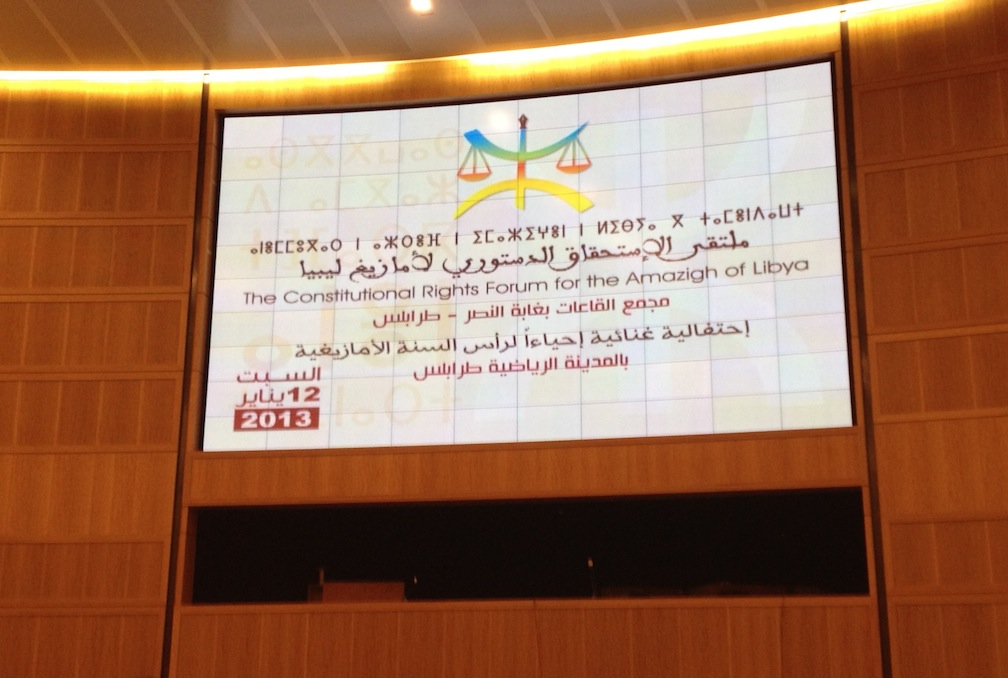By Osama Matri.
Tripoli 12 January 2013:
It is very common to hear political activists, commentators and officials reiterate the following line: Libya . . .[restrict]is a new state coming out of more than four decade-long devastating rule that left no viable state institutions. While I believe this is a historic fact, it is no longer suited to the task of a constructive action.
As a way to partially explain the current shortcoming in government performance, it remains valid; but it has increasingly been used as an excuse to divert attention or justify lack of meaningful progress on major issues that face the country such as constitutional process, poor performance of state institutions, sub-optimal service delivery, building up of capable and effective law enforcement authorities that can ensure security and rule of law.
Since the minimum role of any government is to maintain peace and security and provide for the unity, and safety of its citizens, we can expect that the current government will continue to be preoccupied with those issues. We can also expect that progress may not be as quick as we want and that there will be ups and downs.
But I believe that Libyans , like many others, can and will overcome the messiness of the transition so long as positive vision and conscience are maintained, so long as the desire to live and prosper driven by confidence in the future is always kept alive. Far from being a task of politicians or political activists alone, this will require a society wide effort to counter the pessimism and cynicism that have cast their shadow once more.
I understand that the overwhelming attention given to the political dimension of our current transformation is legitimate as it involves exercising authority to achieve basic human security needs, but we must avoid overreliance on political means alone to address issues that by definition are above and beyond the political realm.
It is one thing to recognize, try to limit, even tolerate to some extent, the frictions, disturbances and imbalances that accompany political competition; but it is quite a different matter to allow society’s dynamism, self-confidence, vibrancy, and creativity to remain hostage to the political process. This is especially true in a society like ours that aspires to summon all forces to overcome formidable challenges at social and political levels.
What I want to emphasize here is that, at this stage of social and political imbalance, state structures and formal institutions will not on their own be able to safeguard social consciousness and moral campus from being appropriated or distorted by political forces in their quest for influence however noble or just the cause they claim to support.
Intellectuals, activists, civil society, businesses and concerned citizens each within their own domain and in their own way, can and should act collectively as a counterweight to the detrimental influence of political competition when it threatens to paint society in its image and turn the potential reservoir of social capital into politicized instruments in a power struggle.
Resistance to the possibility of politics’ “besiegement” of society cannot be achieved exclusively through political means; in fact, I would argue, social, educational and cultural revitalization is as necessary as political considerations to strengthening unity, enhance the cause of reconciliation and overcome a political process that is yet to act as an effective stabilizer.
The electoral process must only be taken as a start; active civic minded forces within the society must develop the means to contain the excesses and negative implications of political competition for a society’s wellbeing, with a view to lessening or redirecting them toward serving the common good. Political competition has its own logic, and it is dangerous to allow society to be subject it divisive dictates.
Many have pointed to the need for Libya to create a political community capable of mediating the differences and providing for a stable democratic political system, but I believe the creation of such a community will not become a reality with time if no effort was exerted to bring it about.
This development will have to be produced, or rather the conditions for its development will be have to be produced through a confluence of societal forces- political activists, CSOs, artists, business community, educational institutions, sports clubs and all forms of civic organizations- that have one sole objective of bolstering the resilience of the society so that it contains politics, broadly defined, as opposed to letting political discourse and process contain and shape society.
Making clear that society as a collective entity that transcends power distribution at any given moment in time is extremely critical at this juncture as it broadens our understanding of real phenomenon in the real world as opposed to being content with a limited framework that forces us to mingle together things that can be quite separate: imperatives of rebuilding the political system and state institutions and the requisites of restoring to society’s its coherence and vitality.
Building the political system and the political process to achieve it, are only a part and a subordinate part of the larger need and necessity of maintaining a dynamic, coherent and vibrant community capable of overcoming any transitory challenges that may exist in the course of normal political competition.
With this perspective in mind, it becomes easy to delineate on one hand those challenges that border on being existential for a given society in the kind of threats they potentially pose to its stability and unity, and on the other hand those challenges that are normal, albeit, disturbing political and social phenomena associated with the kind of drastic transfer of power that occurs in the course of revolutionary change. The two should not be confused with each other. Unfortunately, public discourse on national reconciliation is a victim of this confusion.
While support for national reconciliation is almost recognized as a top priority, disagreement and harsh rhetoric often accompany discussion of its details. Viewed from the perspective outlined above, one common area for potential societal action becomes clearly visible.
The concrete facts support this view. Much of instability and tension in many areas in Libya is not attributable to issues of criminal responsibility for past crimes, as much as it is socio-political post conflict phenomenon having to do with unequal power relations, political disagreements, apprehensions, and misperceptions, triggered by certain instances of morally condemnable and irresponsible and provocative practices that quickly escalate, in an atmosphere of mutual mistrust, to wider conflicts. All these factors collude to mutually reinforce and perpetuate existing tensions.
This scenario is the most diffuse kind and is the greatest contributor to instability, yet it is least discussed and reflected upon. It is my view that when attended to promptly and honestly, it will go a long way in de-collectivizing guilt and better framing reconciliation toward a consistent set of practical solutions.
Even in the worst case scenario, a politically handicapped government can still do a great deal. It can play a role by intensifying nationwide educational, social and cultural initiatives, to bring a more social and moral perspective on many issues that are as social and as human as they can be political. The government can embark on programmes that unleash talents of Libyans in all spheres of life, encourage innovation and creativity in order to bring the vision of a prosperous future as close to people’s minds and hearts at possible.
With the presence of a progressive agenda defined by a relentless focus on the future and its opportunities, at least we have a good chance of neutralizing or placing within tolerable limits the opportunism and divisionism that politics tends to exacerbate.
The views expressed in Opinion articles do not necessarily represent those of the Libya Herald [/restrict]





